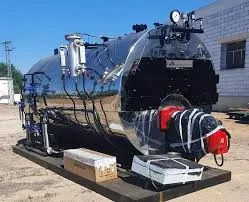
Sep . 22, 2024 04:58 Back to list
2 ton boiler price
Understanding the Price of 2 Ton Boilers
When it comes to purchasing industrial equipment, understanding pricing is crucial. One such piece of equipment that is often in demand is the 2-ton boiler. These boilers are widely used in various industries, including manufacturing, food processing, and textile production. In this article, we will explore the factors that affect the price of 2-ton boilers and provide insight into what buyers should consider before making a purchase.
What is a 2 Ton Boiler?
A 2-ton boiler is capable of producing steam or hot water at a capacity of approximately 2000 kg per hour. This capacity makes it suitable for applications that require moderate heat output. The specific type of boiler can vary, as it can be fueled by natural gas, oil, biomass, or even electricity, significantly impacting its operational efficiency and environmental footprint.
Price Factors
Several factors influence the price of a 2-ton boiler, which can range from a few thousand to tens of thousands of dollars.
1. Type of Boiler The specific type of boiler you choose plays a significant role in price. For example, fire-tube boilers generally have lower initial costs compared to water-tube boilers but may have different efficiencies and operational costs.
2. Fuel Source The choice of fuel will also affect the price. Gas-fired boilers are typically more expensive upfront compared to their oil-fired counterparts, but they might offer lower operating costs and higher efficiency in the long run.
2 ton boiler price

3. Material and Construction The materials used in construction can impact durability and maintenance requirements. Stainless steel boilers tend to be more expensive but are less prone to corrosion than those made of carbon steel.
4. Brand and Manufacturer Established brands with a reputation for quality may charge a premium for their products. Meanwhile, lesser-known manufacturers may offer lower prices but may not provide the same level of support or longevity.
5. Energy Efficiency Higher efficiency boilers often come with a higher initial price tag but can lead to significant savings in fuel costs over time. Look for units with good energy ratings to maximize long-term savings.
6. Installation Costs The total cost of ownership should also consider installation expenses. Complex installations, especially those requiring modifications to existing systems, can add significantly to the initial investment.
7. Regulatory and Compliance Costs Depending on the region, there may be additional costs related to compliance with safety and environmental regulations. Boilers may need to meet specific standards that could affect the overall price.
Conclusion
When evaluating the price of a 2-ton boiler, it is important to consider not just the initial costs but also the long-term implications on operational efficiency, maintenance, and compliance. By understanding the various factors that contribute to pricing, businesses can make informed decisions that align with their operational needs and financial constraints. Prospective buyers should engage in thorough research and consider consulting industry experts to ensure that they choose the right boiler for their specific applications. Investing time in understanding these nuances can lead to more reliable performance and cost savings over the lifespan of the equipment.
-
Efficient Biomass Fired Hot Water Boiler | AI Heating Solution
NewsAug.01,2025
-
High-Efficiency Gas Thermal Oil Boilers | HPT Models
NewsJul.31,2025
-
Oil Fired Hot Water Boilers Sale - High Efficiency & Affordable
NewsJul.31,2025
-
High-Efficiency Commercial Oil Fired Steam Boiler for Industry
NewsJul.30,2025
-
High-Efficiency Biomass Fired Thermal Oil Boiler Solutions
NewsJul.30,2025
-
High Efficiency Gas Fired Thermal Oil Boiler for Industrial Heating
NewsJul.29,2025
Related PRODUCTS






















